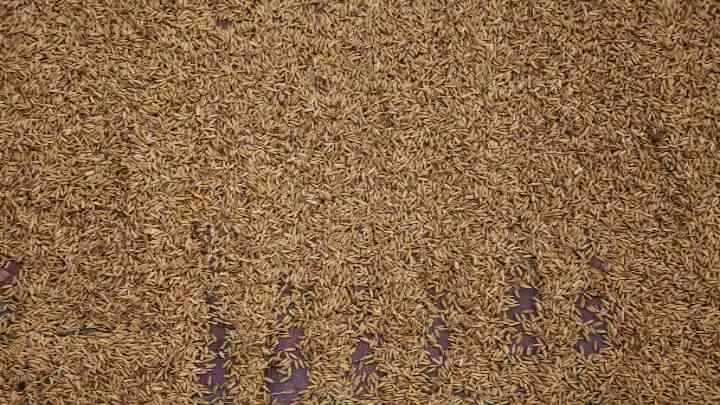Brown basmati rice is a whole grain that fits into any healthy diet plan, and it is one of the most healthy rice for you. They are low in calories and glycemic index, making them a better choice for you.
It has been grown in the Himalayas foothill for thousands of years. Brown basmati rice is also known as “fragrant rice” because it has a good smell. It has various health attributes which distinguish it from other varieties of rice.
While basmati brown rice may not look all that different from brown rice, one whiff of this grain will reveal a significant difference. In addition to having a pleasing aroma, it has a strong flavor compared to the other rice varieties.
This article highlights the benefits, side effects, unique features, and nutritional value of basmati brown rice.
Difference Between Brown Basmati Rice and White Basmati Rice
Although they look similar to the eyes, there are some major differences between them.
1. White basmati rice is white, while brown basmati rice has a tan-like brown color.
2. Brown basmati rice takes longer to cook than white basmati rice.
3. The bran and germ layer is present in brown basmati rice, whereas they are removed during processing for the white basmati rice.
4. There is more arsenic in brown basmati rice than in white basmati rice.
5. Brown basmati rice contains more nutrients than white basmati rice.
Which is Healthier, Brown or White Basmati Rice?
Although the whole grain basmati rice holds more calories than white basmati rice, brown basmati rice is healthier because it contains more fiber, is easier to digest, and has more vitamins than white basmati rice.
What are the Nutrients Found in Brown Basmati Rice?
As much as white basmati rice has its nutritional values, brown contains many more that benefit you. In one serving of brown basmati rice, some of the nutrients gotten are:
- Calories – 210
- Proteins – 5 grams
- Fat – 0,5 gram
- Carbohydrate – 46 grams
- Sugar – 0 gram
- Fiber – 0.7 gram
Other nutrients include zinc, phosphorous, vitamin B1, vitamin B6, copper, folate, magnesium, and iron.
What are the Health Benefits of Brown Basmati Rice?
1. Help in Digestion
The protein and vitamin B in Brown basmati rice make it easy for food to digest quickly, and the added carbs help provide the energy the body needs for quick metabolism.
2. Helps Reduce the Risk Of Cancer
Brown basmati rice has nearly 20% more fiber than any other rice, and fiber helps prevent the formation of cancerous cells. It also eliminates estrogen from the body, hindering or reducing the risk of breast cancer for women.
SEE: Effective Tips to Prevent Breast Cancer Naturally
3. Promotes Good Heart Health
Compared to other rice, brown basmati rice has significantly lower saturated fats and cholesterol. Unsaturated fat helps your heart stay strong as excess saturated fat may risk heart diseases.
4. Aid Weight Loss
You become full after consuming brown basmati rice due to the fiber present, and this is good as it helps you moderate your intake. It also inhibits the amount of fat your body absorbs, making it diet-friendly.
SEE: If Brown Rice Will Make You Gain Weight
5. It is Gluten-free
For people with celiac disease and gluten sensitivity, brown basmati rice is a recommended choice as it is gluten-free. You can make it part of your diet without having fear.
SEE: If Twizzlers are Gluten Free or Not
Why is Brown Basmati Rice Unique?
Apart from its inviting aroma, one other unique feature of the brown basmati rice is that it swells to more than twice its dry length when cooked. The grains continually expand lengthwise, allowing them to keep their characteristic length and slenderness when prepared.
What Can You Do With Brown Basmati Rice?
This rice is used in a whole range of dishes. It works and tastes incredibly well when flavored with a small amount of saffron and cardamom. You can prepare brown basmati rice alongside veggies such as green peas, spring onion, cabbage and carrots.
It is the best choice for cooking sushi, and egg fried rice since it tends to be less sticky, making it easier to stir-fry.
SEE: If You Can Make Sticky Rice From Basmati
FAQs
How long does it take to cook brown basmati rice?
It takes about 30 -35 minutes to cook, depending on how soft your preference is.
What is the amount of carbs in brown rice?
A serving of brown basmati rice contains around 31 grams of carbs.
How can you store brown basmati rice?
You can store it in an air-tight container, in a cool, dry place away from dust or moisture.
How long can you store brown basmati rice?
You can store it for up to 6 months under normal conditions.
Is brown basmati rice healthy for weight loss?
Yes, brown basmati rice would aid your weight loss efforts if eaten moderately. The good news is that a serving contains fewer calories than other rice.
SEE: If Brown Rice Is Low Carb
Conclusion: Is Brown Basmati Rice healthy?
The benefits of brown basmati rice are nearly endless, so it is very safe to eat brown basmati rice. Not only is it healthy, but its flavor and fragrance make it preferable for consumption.
Always remember to take in moderated quantities so you can gain the fullest nutrients and reduce the side effects attached to the excess intake. Some nutritionists recommend consuming brown basmati rice in the winter season as it tends to be a warm filling to your body and white basmati rice in summer has a cool filling for your body.
But overall, brown basmati rice is considerably healthier than white because whole grains are more nutritious than processed grains. So if you aim to reap all the benefits of basmati rice, then you should aim to eat more of the brown variety.
I hope you enjoyed reading this article. If so, learn about the types, preservation, benefits, effects, uses, and side effects of rice on cheffist.
Thank you for reading this article.







